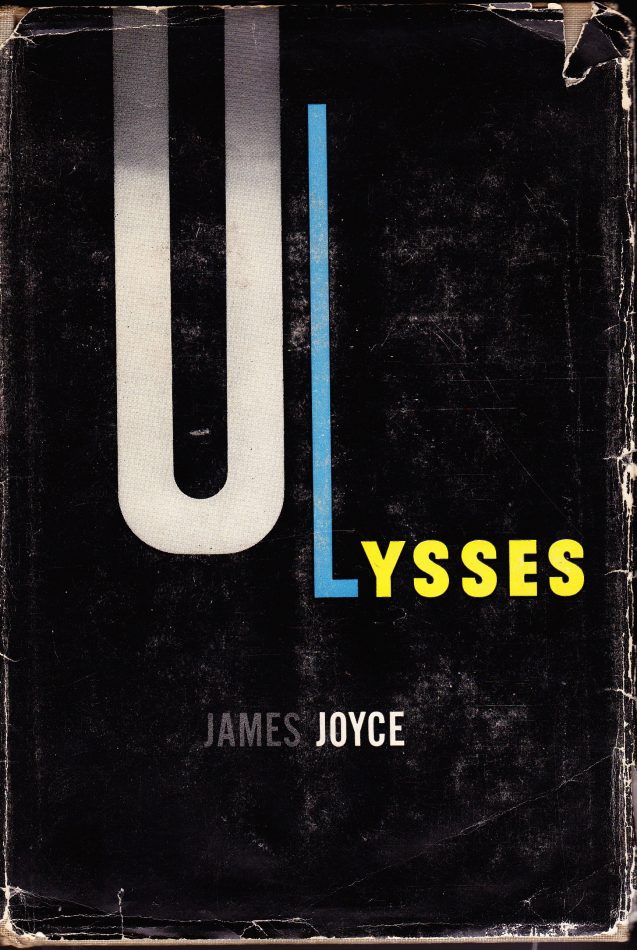James Joyce’s Ulysses is one of the most amazing–amazingly baffling, amazingly clever–books I’ve ever read.
But you wouldn’t recognize its awesomeness if you based your opinion on the words of websites like Sparknotes: “At its most basic level, Ulysses is a book about Stephen’s search for a symbolic father and Bloom’s search for a son.”
What a load of crap. Ulysses isn’t about a young man’s search for a father. It’s about everything. And nothing. And the weird, twisty gray roads in between.
Source: Img Arcade
Ulysses cannot be easily analyzed, or even easily understood. It begs to be approached like an abstract painting: each word doubles upon itself, each sentence seeks to twist the laws of language, and each chapter is a gloriously defiant declaration about the chaos that underlies our reality. You cannot hope to understand it perfectly upon a first reading, so my advice is that you don’t even try. Joyce plays on readers’ expectations–he likes not fulfilling them.
But there are a few important things about Ulysses that you should understand perfectly:
- Ulysses is not The Odyssey. Its characters, superficial plot, and some themes and motifs are loosely based on Homer’s work, but you shouldn’t start reading Ulysses assuming that it’s simply a modern adaptation, or even that you’ll easily be able to identify the connections between Joyce’s work and Homer’s. The character you think might be Penelope could also parallel Odysseus in certain ways–and in a super fun twist, mirror Calypso as well.
Source: Wikimedia
- The context for Ulysses is INCREDIBLY important–it warrants way more than the pitiful few paragraphs that Sparknotes lends it.
- Things in Ireland were really tense in Joyce’s time. He resented English colonialism, but at the same time he also rejected Irish martyrdom as a pretty but flawed ideal. Take Chapter 6 of Ulysses: what Sparknotes doesn’t tell you is that the whole cattle thing is actually quite culturally important. The British exported so much meat that the Irish were left to starve. In a way, the Irish are cattle. Yet Bloom is quite practical when it comes to the cattle–he is merely concerned with their connection to pecuniary matters.
Source: Beef Ambassador
That should give you a starting point for understanding the basics of Joyce’s masterpiece. It would be impossible to give a chapter-by-chapter guide to understanding Ulysses without writing an article the length of a short novel.
But as I’ve said in the other articles in this series, there are ways that you can improve your own understanding of this text. Map out the chapters, including their basic plot, important ideas or events, their connection to The Odyssey, and any questions you have about it (there are probably going to be a lot, fair warning). Check out scholarly resources, like articles on JSTOR, to expand your ideas of what this work “means.” And for goodness’ sake, do not allow yourself to become a literary cyclops: swish some tea leaves around and call upon Professor Trelawney to open your “inner eye” if you must, but do not under any circumstances limit yourself to a single, rigid reading of this beautifully Protean text.
Now–analysis time.
Source: Ideal Magazine
Destabilizing Ideals
- Epics like Ulysses, and The Odyssey (the Homeric work upon which Joyce’s novel is based) are supposed to be focused on heroes and the ideals of heroism. But Joyce throws all that out the window: Bloom is based on Odysseus, but he also is the opposite of Odysseus. He’s a normal–one might even say pathetically normal–man, yet he suffers the same trials and tribulations as Odysseus (in much more banal ways, of course, but still). Is Bloom a hero? How else does Joyce destabilize the stereotypical trope of the hero? What, indeed, makes a hero?
- Idealism vs. Reality: How do you make the ordinary extraordinary? And how do you measure success?
Source: Ask Ideas
Metempsychosis
Everyone talks about Bloom’s problem word (parallax), but not many people (*cough* Sparknotes! *cough*) discuss metempsychosis, the word that haunts Bloom’s wife, Molly. “Metempsychosis” is defined as the supposed transmigration of a human soul into a new body of the same or different species after death. So, reincarnation. That can be used to see Ulysses in a lot of cool ways. Including this one: in Dante’s Divine Comedy, he condemns Odysseus to Hell because of his thirst for knowledge. Joyce ‘rescues’ Odysseus and bases an entire novel on him, but his protagonist is not the same as Homer’s Odysseus. He is Odysseus reincarnated. Odysseus parodied. Odysseus glorified. Odysse-oom.
How else does metempsychosis influence Joyce’s work?
Source: Kheper
Constant Tension: Verisimilitude vs. Authorial Artifice
Joyce wanted Ulysses to be realistic–but another level of realistic. He wanted to keep it as close to reality as he possibly could–ergo the complete lack of context, explanations, and artificial dialogue. In fact, Ulysses was a sort of rebellion against the genre of realism: it was a sort of taunt to other authors. “You can claim your work is realistic, but mine REALLY is!”
That’s all well and good, but there are definite problems with Joyce’s quest for verisimilitude:
- How do you distinguish between what is important and what is unimportant?
- How do you arbitrarily focus on certain characters–and noticeably change your novel’s style and form from chapter to chapter–without announcing your authorial presence with the literary equivalent of a megaphone? Does Joyce ever truly succeed? How and why?
Source: Story Kween
As Garry Leonard notes in The Cambridge Companion to James Joyce, Joyce was particularly concerned that his style presented “the life of a character in a way that does not preach about the meaning of his life, but invites the reader to observe closely and speculate.’”
So get close. Observe. Speculate. And enjoy.
YouTube Channel: WatchMojo
Featured image via Amazon
